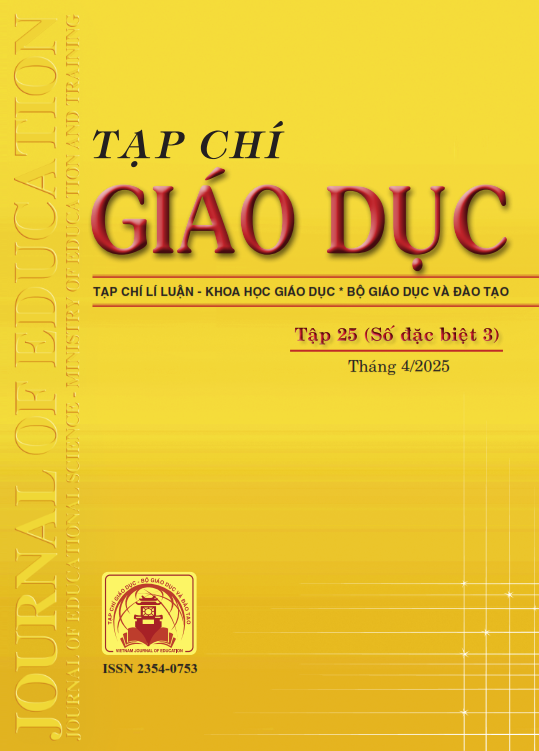Phát triển tài nguyên giáo dục mở và những thách thức đối với trường đại học
- Từ khóa:
- Resources
- open education
- university
- challenges
Tóm tắt
Developing open educational resources (OER) so that users can access them anytime, anywhere plays an important role in educational activities in the context of the Fourth Industrial Revolution. UNESCO strongly recommends that countries develop OER and considers this one of the fundamental and urgent activities for creating learning environments in the digital age. While advanced countries have made significant strides in this area, Vietnam is only at the beginning stages. Higher education institutions are the core pioneers of this effort but still face numerous obstacles and a slow start. This article is based on UNESCO's guidelines to identify actions that higher education institutions must implement, thereby highlighting the challenges they face. Early recognition of these challenges will provide suggestions for solutions to develop OER at educational institutions while also raising issues that need to be addressed at the macro-policy level.
Tài liệu tham khảo
Day of Dubai, M. Y. D. (2024). 3rd UNESCO World OER Congress in Dubai Concludes with Action Plan to Empower Students Worldwide. https://www.dayofdubai.com/news/3rd-unesco-world-oer-congress-in-dubai-concludes-with-action-plan-to-empower-students-worldwide
Đỗ Văn Hùng (2017). Tài nguyên giáo dục mở - yếu tố tích cực cho đổi mới giáo dục đại học và mục tiêu phát triển bền vững quốc gia. Tạp chí Thông tin và tư liệu, 5, 3-14.
Konkol, M., Jager-Ringoir, K., & Zurita-Milla, R. (2021). Open Educational Resources – Basic concepts, challenges, and business models. Faculty of Geo-Information Science and Earth Observation (ITC), University of Twente. https://zenodo.org/records/4789124
Lê Trung Nghĩa (2021). Thực trạng tài nguyên giáo dục mở ở Việt Nam và gợi ý giải pháp cho học tập suốt đời. Kỉ yếu hội thảo quốc gia “Khoa học Giáo dục với đổi mới căn bản, toàn diện giáo dục và đào tạo”. Viện Khoa học Giáo dục Việt Nam, tr 304-323.
Lê Trung Nghĩa (2022). Hạ tầng Khoa học Mở và gợi ý cho Việt Nam. Tạp chí Tia Sáng, 17, 19-22.
Nguyễn Thị Ngọc (2019). Những rào cản đối với xây dựng và phát triển OER trong giáo dục đại học hiện nay. Kỉ yếu hội thảo “Xây dựng và khai thác tài nguyên giáo dục mở”. NXB Đại học Quốc gia Hà Nội.
The Open Government Partnership Global Summit - OGPGS. (2015). The International Open Data Charter. https://opendatacharter.org/wp-content/uploads/2023/12/opendatacharter-charter_F.pdf
UNESCO (2019). Open Educational Resources. https://www.unesco.org/en/open-educational-resources
UNESCO (2024). Guidelines on the implementation of the OER Recommendation Action (Areas 1, 2, 3, 4, 5). UNESCO Digital Library. https://unesdoc.unesco.org/ark:/48223/pf0000389031 (and /48223/pf0000389032, /48223/pf0000389037, /48223/pf0000389038 & /48223/pf0000389039)
Weller M. (2020). Open and Free Access to Education for All. Radical Solutions and Open Science. https://link.springer.com/chapter/10.1007/978-981-15-4276-3_1
Đã Xuất bản
Cách trích dẫn
Số
Chuyên mục
Giấy phép

Tác phẩm này được cấp phép theo Ghi nhận tác giả của Creative Commons Giấy phép quốc tế 4.0 .












